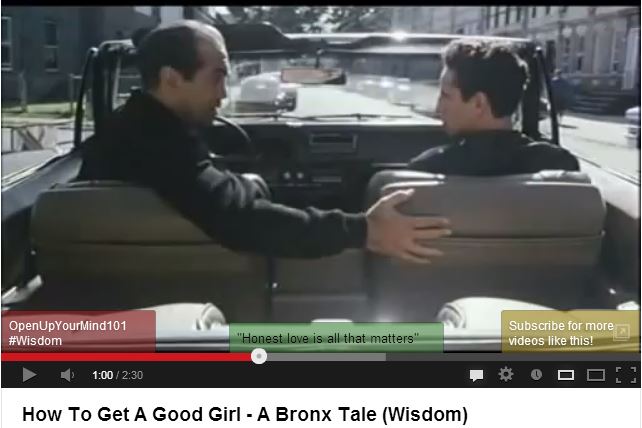I was in high school when they came around our neighborhood casting for A Bronx Tale. At the time my favorite scene in the movie was this one:
I tend to view my students like these characters think about “the great ones.” There are indeed only a few. And precious few they are. We will say more about them in due time. But for today’s reflection, think about the test that is proferred in the above scene. I’ve been doing that test in the classroom for years. And even to my amazement, it has never been passed. By my count we’ve assigned and graded well over 50,000 questions since I started teaching about a decade ago. And not once among all of those 50,000 questions, nearly every single one of them an essay question, has a student approached us to tell us that they were too generously graded. Not once.
And not a single time among the thousands of exams administered has a student ever come forward to show us that we added up the point totals too high. Not once. I can surely tell you that the number of times that students have expressed concern over an addition problem is over 100, and the number of times students have come forward to express concern over “tight” grading is nearing the 5 digit range. Do you know what the statistical probability of that being random is? Zero. Absolutely zero. There is no statistical chance that every honest mistake we have ever made was on the side of “too tough” and there is no chance that we have a reason to systematically grade exams “too tight” … after all, the more rigorous we grade the more likely we are to field complaints.
Without spilling the beans too much, we’ve also managed to run some informal experiments to see how honest people are. I won’t divulge more – but rest assured these had no impact on the ultimate grades anyone has ever achieved. And rest assured that in a sample of now over 300 cases, not a single student has come forward in response to a “bank error in their favor.” Not … one.
If I had to boil down what matters to me most in thinking about the quality of person I strive to be, and the quality of person I hope to see in this world, it is this. “What do you do when no one is watching?” It’s a murky question, I know. And by no means am I proud of everything I’ve done when no one is watching. But I try to live even my privatest of private moments in my life as if someone were on my shoulder, someone whom I respected, evaluating my thoughts and actions (yes, we may invoke god or God here or something else that is more politically correct). I’ve disappointed this spectator too many times for me to die a happy person about how I’ve lived my life (we don’t get second chances on some things, alas), but I’m afraid that I know very few people who can pass even crude versions of the Door Test from a Bronx Tale. This brings me both sadness and optimism for I hope obvious reasons.
As for political and economic implications of such an observation, I too, hope that they are fairly obvious to our readers here. I hope they would be obvious to others too.

Well, most of the people you have sampled are students of a certain age group. Maybe there is something about their age, rather than their honesty. I myself can honestly (hmm, yes honestly! :p) say that I distinctly remember going to a professor to point that they had given me too many points once. I’m pretty sure I remember this, and I think I remember that the result was high enough that I didn’t really care if I lost a couple of points. Plus there was the added benefit of scoring points with the professor!
I do know that I went back to a restaurant to tell them they had charged me too little once. The reason I did that is because I though that the waiter may have to eat the losses.
The door test, I think, a lot of people pass. Especially in the US, and especially anyone who has seen this movie. There’s still hope. At least, what gives me hope is that the US looks a lot better in this area than most of the rest of the world.
I know that if I received an honesty test in a class when I was in college, or if I was still taking classes, I would have failed it. I never would have told the professor if he made a bank error in my favor. I went to Denny’s last week and I ordered a burger but the waiter who was just off the boat from Jamaica misunderstood my order and brought me a burrito instead. I sent it back. He gave me the burger, but charged me for the burrito, which was $2 cheaper. I never told him, I paid for the burrito and I left. Because this is the real world and I like money. If God is mad at me for those $2 then trust me he stopped caring about me awhile ago. People respond to incentives. Demand curves are real and down-sloping.